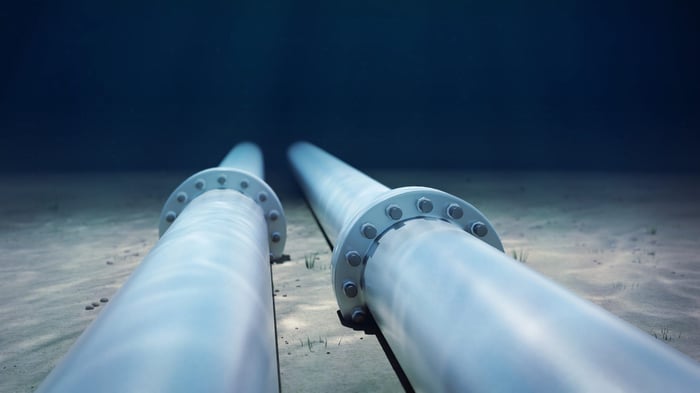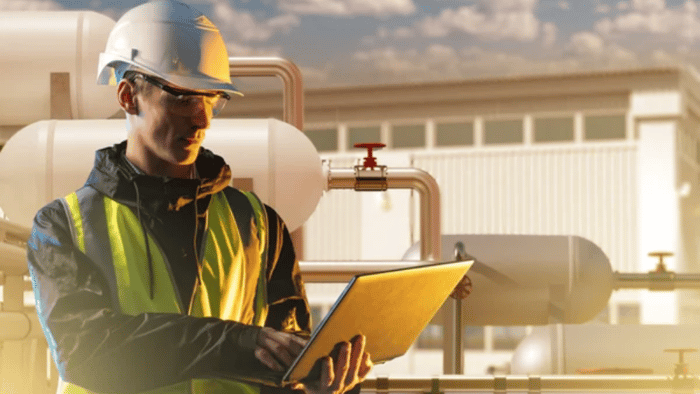
About the Course
The Design of Subsea Pipelines course is a comprehensive four-day programme aimed at professionals in the oil and gas industry, focusing on the principles, calculations, and practical applications involved in subsea pipeline design. The course covers all critical aspects, from pipeline routing and material selection to corrosion prevention and stability analysis.
The programme begins with a deep dive into pipeline routing. Participants will learn about the rules governing pipeline routing, survey methodologies, and the creation of alignment sheets. These foundational elements are essential for understanding the complexities of subsea pipeline design.
Next, the course explores material specifications, providing insights into material selection and the properties of various pipeline materials. Delegates will review line pipe specifications, focusing on how to choose the right materials to ensure the pipeline's durability and performance under different environmental conditions.
A significant portion of the course is dedicated to understanding and preventing corrosion, a major concern in subsea pipeline management. Participants will learn about internal and external corrosion mechanisms, chemical methods for corrosion control, and the application of external coatings and cathodic protection. Detailed discussions on anode design and practical examples will illustrate the effective prevention of corrosion.
The design principles for pipeline strength are thoroughly covered, addressing key challenges such as bursting, collapse, and buckling. The course focuses on strain-based design, using practical examples to demonstrate how these principles are applied in real-world scenarios. This section ensures that delegates can design pipelines capable of withstanding various stresses and operational demands.
The course also addresses end expansion and spoolpieces, essential components in pipeline design. Participants will explore factors affecting end expansion, force considerations, and temperature profiles. Practical examples will help delegates understand the complexities of spoolpiece design and implementation.
On-bottom stability is another critical area of focus. The course delves into the fundamentals of oceanography and hydrodynamics, essential for analysing pipeline stability on the seabed. Computational fluid dynamics (CFD) and practical examples are used to illustrate stability analysis techniques. Participants will also learn about bottom roughness analysis, span design codes, and intervention strategies, ensuring that pipelines remain stable and operational under various environmental conditions.
Throughout the course, practical application of theoretical knowledge is emphasised. Delegates will engage in interactive exercises and real-world case studies, providing a hands-on learning experience that reinforces the concepts discussed. These case studies illustrate best practices in subsea pipeline design, enabling participants to apply what they have learned to their professional roles effectively.
The course fosters a collaborative learning environment where participants can share experiences and solutions. This approach not only enhances the learning experience but also helps build a network of professionals equipped to handle the complexities of subsea pipeline design.
By the end of the course, delegates will have a comprehensive understanding of subsea pipeline design, equipped with the skills to ensure the operational efficiency and reliability of subsea infrastructures. This training is essential for professionals involved in subsea operations, providing them with the knowledge and tools to manage subsea projects successfully and contribute to the advancement of the oil and gas industry.
Who's it for
The Design of Subsea Pipelines course is tailored for professionals involved in the design, installation, and maintenance of subsea pipeline systems. This includes:
-
Project engineers managing subsea pipeline projects from conception to completion.
-
Design engineers responsible for creating and validating pipeline designs.
-
Installation engineers overseeing the installation and commissioning of subsea pipelines.
-
Maintenance personnel responsible for the upkeep and operational integrity of pipeline systems.
-
Technical team leaders and managers leading teams in subsea pipeline operations and project management.
This course is designed to enhance the professional development of individuals dedicated to advancing their expertise in subsea pipeline design.
Learning Objectives
-
Identify key considerations for pipeline routing and alignment.
-
Select appropriate materials for pipeline construction based on environmental and operational requirements.
-
Implement corrosion prevention strategies and understand their applications.
-
Perform design calculations for pipeline strength, addressing challenges such as bursting, collapse, and buckling.
-
Analyse and ensure the on-bottom stability of pipelines using advanced techniques.
Course Content
-
Day One
Pipeline routing
-
Rules for routing
-
Exercise
-
Route survey
-
Alignment sheets
Pipeline diameter
-
Sizing for flow
-
Fluid properties
-
Flow Fundamentals
-
Single-phase flow
-
Multi-phase flow
Thermal design and insulation
-
Need for thermal design
-
Fundamentals of heat transfer
-
Pipeline heat transfer
-
Insulation design considerations
-
Insulation systems
-
Application of insulation
-
Operational problems in deep water
-
-
Day Two
Materials specification
-
Material selection
-
Review of material properties
-
Specification of line pipe
Corrosion
-
Internal corrosion
-
External corrosion
-
Chemical methods
-
External coatings
-
Cathodic protection
-
Anode design
-
Worked example
-
-
Day Three
Design for strength
-
Design principles
-
Bursting
-
Collapse
-
Buckling and combined stresses
-
Strain-based design
-
Worked example
End expansion and spoolpieces
-
End force and expansion factors
-
End expansion
-
Worked example
-
Temperature profile
-
Spoolpieces
-
Worked example
-
-
Day Four
On-bottom stability
-
Review of fundamentals
-
Oceanography
-
Hydrodynamics
-
Resistance
-
Stability analysis
-
Computational fluid dynamics
-
Worked example
Bottom roughness and intervention
-
Bottom roughness analysis
-
Span design codes
-
Span assessment
-
Static analysis
-
Vortex-induced vibrations
-
Intervention
-
Learning Outcomes
By the end of the course, delegates will have:
-
A solid understanding of key considerations for pipeline design.
-
Mastered the rules and processes for pipeline routing.
-
Learned how to select the appropriate pipeline diameter based on flow and fluid properties.
-
Evaluated various pipeline materials and recommended suitable options.
-
Understood various corrosion protection methods and their applications.
-
Performed design calculations in compliance with industry codes.
These outcomes prepare delegates to effectively address the challenges in subsea pipeline design, ensuring they can contribute significantly to their organisations and the industry.
-
Class Materials
- Case studies that explore real-world subsea engineering challenges and their solutions.
- A comprehensive course manual detailing all essential topics and technical data.
- Detailed notes from the tutor, Dem Demetriou, offering additional insights and expertise.
- A collection of references and practical worked examples to deepen understanding and application of the material.
-
Jeenius
Participants in the Design of Subsea Pipelines course gain access to Jeenius, a cutting-edge learning platform that offers comprehensive support tools. This platform includes all course notes, recordings of the sessions for later review, and the opportunity for one-on-one support with the tutor. Additionally, Jeenius provides access to the latest insights in subsea engineering, enhancing the learning experience with up-to-date industry knowledge.
-
In-Company Delivery
For in-company delivery options and content customisation to meet your specific needs, please don't hesitate to reach out to us.
Book one of our in-company courses, tailored to your team.
Your Tutor

Mike Hawkins
BTech, CEng, FIMechE
LEAD TUTOR
Testimonials
"Enlightening and thorough approach to pipeline design, well augmented by real world examples."
"Excellent course for anyone working in subsea pipelines."
Similar Courses



